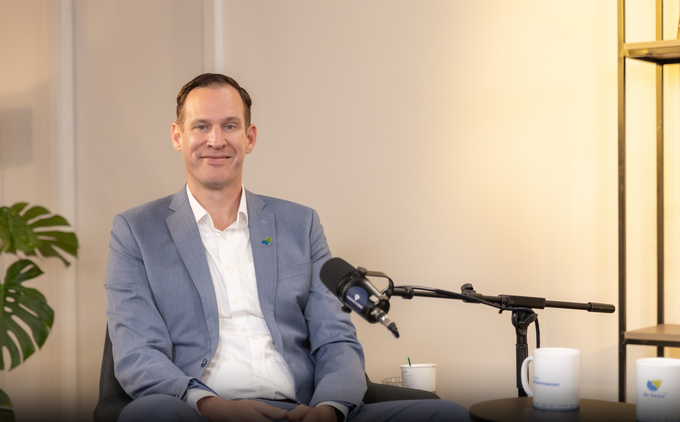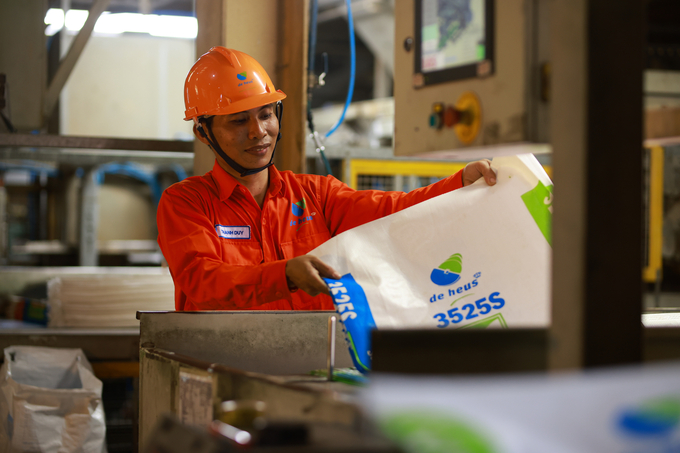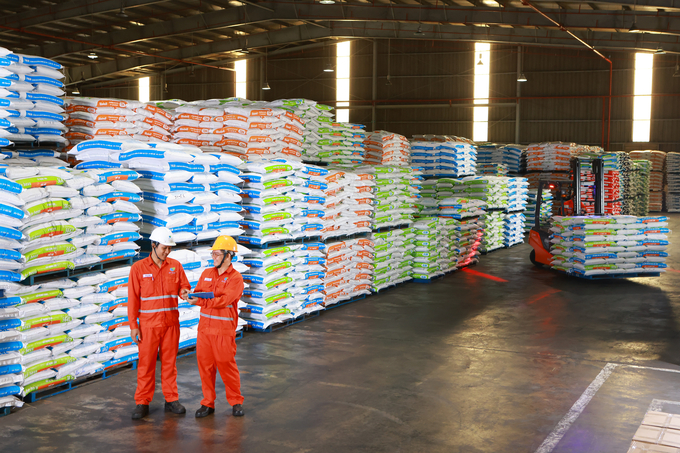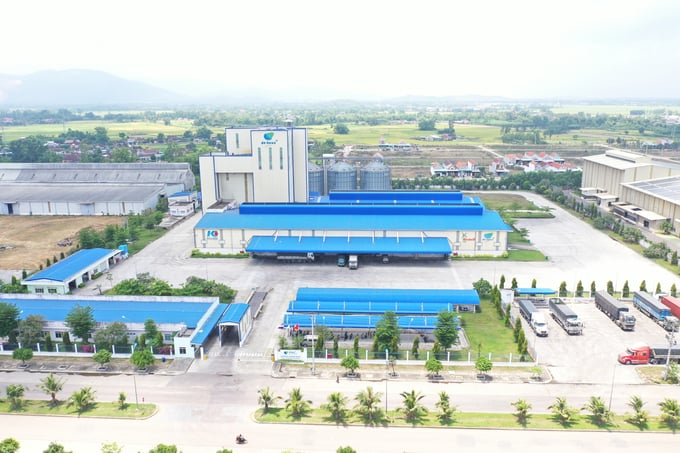May 30, 2025 | 08:09 GMT +7
May 30, 2025 | 08:09 GMT +7
Hotline: 0913.378.918
May 30, 2025 | 08:09 GMT +7
Hotline: 0913.378.918

Gabor Fluit, CEO Asia at De Heus
After fifteen years of stable development in Vietnam, Gabor Fluit noted that the country is currently one of the fastest-growing in Southeast Asia.
After a transition from small-scale, family-based livestock production, local households nationwide have gravitated towards professionalized farming and large-scale operations over time. The innovative spirit of Vietnamese farmers plays a crucial role in driving the sector’s development.
Their proactive pursuit of knowledge and rapid adoption of new technologies, management software, and automation systems has elevated the position of Vietnamese agricultural products in the global market. De Heus is proud to have accompanied Vietnamese farmers throughout the years, sharing technical knowledge and promoting technology applications to support them in this transformation.

De Heus is proud to have accompanied Vietnamese farmers over the last fifteen years.
Throughout its development, Vietnam’s livestock sector has faced substantial and damaging diseases such as African swine fever and avian influenza. Furthermore, Vietnam's livestock sector is highly dependent on international markets and faces substantial costs, as more than 70% of its animal feed ingredients are imported.
In response, De Heus Vietnam has encouraged local governments to promote the cultivation of suitable crops, coordinate with farmers to select seeds, and provide guidance on farming practices to enhance crop yields and increase profitability.
In addition to disease pressures, the threat of saltwater intrusion in the Mekong Delta has posed significant challenges for Vietnam’s livestock sector. With the aim of addressing these issues, De Heus is committed to finding comprehensive solutions to support farmers in overcoming challenges and promoting the sustainable growth of the livestock sector.
As Vietnam’s economy continues to expand, De Heus recognizes its mission to motivate farmers and attract young, dynamic, and creative talent to the agricultural sector.
Facing the need to continually improve its product quality, Gabor Fluit believes that the pressure to innovate is a powerful driver of growth. Consequently, De Heus Vietnam has invested in Research and Development (R&D) Centers to test optimal products tailored to local farming environments and conditions, as well as providing critical support for Vietnamese farmers.

De Heus aims to achieve sustainable growth in business development through the optimization of current resources.
Regarding the company’s direction for animal feed development, Gabor Fluit commented that De Heus aims to achieve sustainable growth by optimizing existing resources to ensure the supply of high-quality, affordable feed for a projected global population of 10 billion by 2050.
On the other hand, De Heus plans to enter new markets in addition to expanding in existing ones, especially in Vietnam, one of the Group’s primary markets worldwide.
De Heus currently produces a diverse range of animal feeds, which encompass compound, concentrated, and specialty feeds. The company is committed to supporting local farmers and promoting the sustainable development of the livestock sector.

De Heus Vietnam owns 17 production plants as well as Asia’s first premix plant.
At present, De Heus Group owns over 80 production facilities across more than 20 countries, with distribution reaching over 75. In Vietnam, De Heus operates 17 production plants as well as the first premix plant in Asia, supported by a wide-reaching national distribution network.
De Heus’ animal feed factories are equipped with modern automation technology. The company also employs international experts for monitoring and operating under ISO 22000 and Global GAP standards.
Sustainability is the key to creating advantages for Vietnam's livestock industry. This is also the way to build a green future for Vietnam's livestock industry. Johan van den Ban, General Director of De Heus Vietnam, remarked: "Nearly fifteen years ago, when De Heus first entered Vietnam, our main customers were distributors of animal feed products and nutritional solutions. They primarily sell these products to small farmers, who only own a few chickens, pigs, or cows."
De Heus is currently operating in the animal feed segment for cattle, poultry, and aquaculture species. Johan noticed two different trends. For aquaculture, De Heus exports the majority of its output, which includes shrimp, shark catfish, and marine fish, to various major markets around the world, such as the US, Europe, Japan, South Korea, etc. Notably, these countries impose strict requirements for food safety and antibiotic residues. As a result, farmers in the aquaculture value chain understand that they must comply with increasingly high standards.
Translated by Nguyen Hai Long
/2025/05/25/4127-3-073637_820.jpg)
(VAN) Thanks to the promotion from an FAO-implemented project, vegetable production in greenhouses in Moc Chau has seen strong development, from 1.5 hectares in 2021 to nearly 50 hectares in 2024.

(VAN) FAO has recently supported USD 140,000 to implement the project 'Risk mitigation human-animal interface risks through disease control initiatives in pig farming.'

(VAN) The People's Committee of Tra Vinh province has approved an adjustment to the investment policy for the Green Hydrogen Plant project, increasing its area to approximately 52.76 hectares.
![Reducing emissions from rice fields: [2] Farmers’ commitment to the soil](https://t.ex-cdn.com/nongnghiepmoitruong.vn/608w/files/news/2025/05/05/dsc08881jpg-nongnghiep-140632.jpg)
(VAN) Clean rice cultivation model in Thuong Tan commune, Bac Tan Uyen district, is assisting local residents in achieving sustainable agriculture by substantially reducing costs, increasing productivity, and protecting the environment.

(VAN) At the conference to disseminate Resolution No. 68, AgriS introduced its digital agricultural ecosystem and reaffirmed its commitment to accompanying the Government in promoting private sector development and sustainable agriculture.

(VAN) 'Blue Ocean - Blue Foods' initiative is designed to restore marine ecosystems and establish sustainable livelihoods for local communities by cultivating a minimum of 1,000 hectares of cottonii seaweed in the first three years.
/2025/05/21/4642-3-112707_603.jpg)
(VAN) The V-SCOPE project has made direct contributions to three out of six pillars of the Comprehensive Strategic Partnership between Vietnam and Australia.